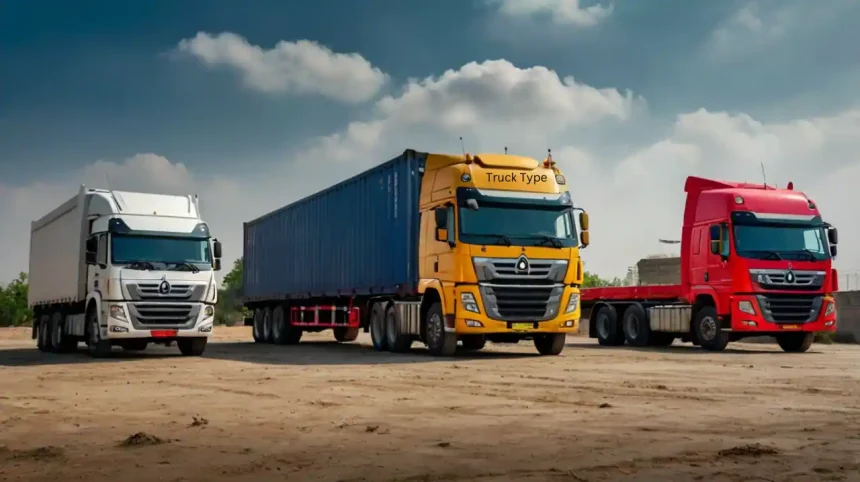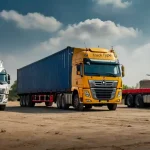When it comes to running a successful business, choosing the right truck is crucial. The type of truck you use can significantly affect your operational efficiency, cost management, and long-term growth. With so many options available, finding the right fit for your needs can be overwhelming.
This comprehensive guide will walk you through the essential factors to consider when selecting the best truck for your business. Read on.
Understanding Your Business Needs
Before you even start shopping for a truck, it’s essential to have a clear understanding of your business’s logistics. The type of business you run dictates what kind of truck you need.
Are you transporting small packages within a local area, or are you hauling large equipment across long distances? Some key factors to consider include:
Type of Goods
What are you hauling? Perishable items, construction materials, or furniture? The nature of your cargo determines the type of truck, cargo area, and special features you need, such as refrigeration or secure shelving.
Distance Traveled
Will your trucks mainly serve local routes or long-haul trips? If you’re doing long-distance hauling, fuel efficiency, comfort, and durability become more important than if you’re making local deliveries with short, frequent trips.
Load Capacity
How much weight do you need to carry? If you’re handling light products, a smaller truck might suffice, while heavy-duty materials may require a more robust vehicle.
Frequency of Use
Do you need trucks that will run daily, or just on occasion? A more durable and capable truck might be a better investment if your business is very active.
Having a clear picture of your needs will help you narrow down your options and prevent unnecessary overspending on features or trucks you won’t use.
Types of Trucks and Their Uses
Trucks come in various shapes and sizes, each designed for specific tasks. Here’s a breakdown of the main truck types:
Light-Duty Trucks
These trucks are generally for businesses that make frequent local deliveries with relatively light loads, such as:
- courier services
- small retail shops
- food deliveries
They can carry loads up to around 6,000 pounds and are typically more fuel-efficient and easier to maneuver in urban environments. Examples include the Ford Transit, RAM ProMaster City, and the Nissan NV200.
Medium-Duty Trucks
Medium-duty trucks are ideal for businesses that need a little more capacity but don’t require heavy-duty rigs. These are perfect for moving large quantities of cargo over moderate distances.
Examples include the Ford F-650 or the Isuzu NPR. Businesses like landscaping services, furniture delivery, or food service often use medium-duty trucks.
Heavy-Duty Trucks
These are your big rigs, designed to haul massive loads over long distances. Heavy-duty trucks are essential for industries like construction, freight transportation, or long-haul trucking. These trucks can carry over 33,000 pounds and are typically outfitted with:
- more robust engines
- large cargo space
- specialized configurations for different kinds of heavy cargo
Common examples are the Freightliner Cascadia or Kenworth T680
Specialized Trucks
Specialized vehicles come in many forms, designed to handle specific business needs. These might include:
- refrigerated trucks (for perishable goods)
- flatbed trucks (for construction or oversized items)
- box trucks (for general deliveries)
- and more
If your business requires handling sensitive cargo or unique logistics, specialized trucks are a must.
Key Considerations When Choosing a Truck
Choosing the right truck isn’t just about size and capacity. Several other factors should be considered to ensure you’re making a sound investment for your business.
Load Capacity and Dimensions
It’s vital to match the truck’s capacity to the typical loads your business handles. Underutilizing a large truck could mean higher operational costs while overloading a smaller truck can result in:
- safety risks
- breakdowns
- expensive repairs
Ensure you account for both weight and volume to choose the right dimensions.
Fuel Efficiency
Trucks, especially those used for long distances, can eat up a lot of fuel. Fuel efficiency is key to keeping operational costs down.
While heavy-duty trucks may consume more fuel, newer models come with more fuel-efficient engines and technologies, such as hybrid or electric powertrains. If you expect to rack up many miles, investing in a more fuel-efficient truck can save significant money in the long run.
Maintenance and Reliability
Every truck will need maintenance over time, and the last thing you want is for your vehicle to break down in the middle of a job. Opt for brands that are known for reliability, have easily accessible parts, and offer solid warranties. Keeping trucks well-maintained reduces downtime and ensures that your business operates smoothly.
Costs
Trucks can be expensive, and it’s not just about the initial purchase price. You should consider the total cost of ownership, which includes fuel, maintenance, insurance, and taxes. Some businesses may benefit from leasing trucks instead of buying them outright, especially if they anticipate fluctuations in demand.
Brand Reputation
Some brands are known for producing more durable, reliable vehicles than others. Investing in a truck from a reputable manufacturer can help ensure your fleet runs smoothly.
Brands like Ford, Freightliner, and Isuzu have built solid reputations over the years. Just make sure to consult an expert on Commercial Truck to avoid any purchase issues.
Regulatory and Compliance Issues
Before purchasing a truck, it’s important to consider the regulatory environment and ensure you comply with all laws. Regulations vary depending on the region, type of truck, and goods being transported. Some key compliance issues to be aware of include:
Safety Standards and Certifications
Make sure the trucks you’re considering meet the safety standards required for commercial vehicles in your area. This includes ensuring that they are roadworthy, have proper braking systems, and pass emissions tests.
Weight Limits and Environmental Regulations
Different areas have weight restrictions for commercial trucks, especially in urban environments or on bridges. Be sure that the trucks you purchase comply with weight limits and meet local environmental regulations. If you’re considering electric or hybrid trucks, these may also qualify for government incentives.
Insurance and Permits
Commercial trucks require different insurance than personal vehicles. It’s also important to confirm that you have the necessary permits for operating a fleet of trucks, which may vary by state or country.
Create Your Tracking Business Today
In conclusion, selecting the right truck type for your business is crucial for maximizing efficiency and profitability. By following this guide, you can make a well-informed decision that meets your specific needs.
Use this comprehensive guide to choose the best truck type, and take your business to new heights. Don’t wait any longer, make the right choice for your business and start reaping the benefits now!
If you want to read more articles, visit our blog.


